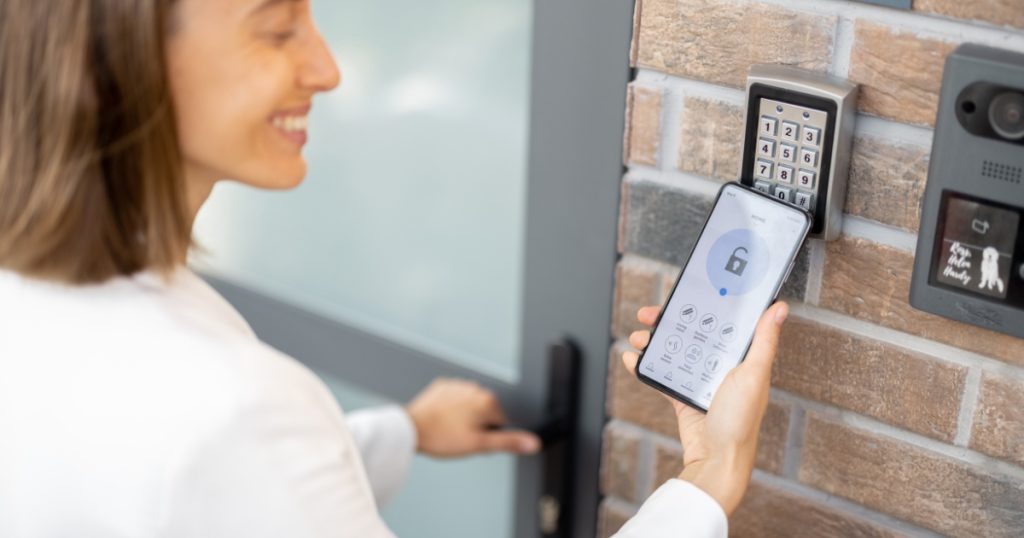When it comes to securing your home or business, one of the most crucial elements is choosing the right door locks. With an array of options on the market, it can be challenging to determine which lock is the best fit for your needs.
This comprehensive guide will provide insights on how to choose the best locks for your doors by discussing various factors, lock types, security ratings, and installation tips.
By following these guidelines, you can protect your property and loved ones with confidence.
Understanding the Importance of Door Locks
The Role of Door Locks in Security
Door locks play a crucial role in ensuring the security of your property. They act as a barrier, preventing unauthorised access and discouraging potential intruders. A high-quality lock can be the difference between a safe and secure home and a vulnerable one.
Different Levels of Security
Not all door locks are created equal. Some locks offer basic protection, while others are designed to withstand sophisticated break-in attempts. When choosing a lock, it’s essential to consider the level of security you require, based on factors such as location, crime rates, and the valuables within your property.
Factors to Consider When Choosing a Door Lock
1. Purpose of the Door
The purpose of the door will play a significant role in determining the most suitable lock. For exterior doors that lead to the outside, a high-security lock is recommended. For interior doors, such as bedroom or bathroom doors, privacy and ease of use may be prioritised over security.
2. Door Material and Construction
The material and construction of your door can impact the type of lock you choose. Wooden doors, for example, require different locks than metal or uPVC doors. The thickness of the door is also a crucial factor, as some locks may not fit or provide adequate security for thinner doors.
3. Budget
Your budget will play a significant role in the type of lock you choose. While it’s crucial to invest in a high-quality lock, there are options available for various price ranges. It’s important to strike a balance between cost and security to ensure the best protection for your property.
Common Types of Door Locks
1. Deadbolts
Deadbolts are one of the most secure and widely used types of locks for external doors. They provide excellent protection against forced entry and can be used as a standalone lock or in combination with a latch or knob lock.
a. Single Cylinder Deadbolts
These deadbolts have a keyhole on the exterior and a thumb turn on the interior. While they offer good security, they can pose a risk if there is a nearby window, as an intruder could break the glass and unlock the door from inside.
b. Double Cylinder Deadbolts
These deadbolts require a key on both the exterior and interior sides. This design eliminates the risk associated with single cylinder deadbolts, but can also pose a safety hazard in case of an emergency that requires a quick exit from the property.
2. Mortise Locks
Mortise locks are commonly found in older homes and commercial properties. They are installed within a pocket (or “mortise”) cut into the edge of the door. Mortise locks typically offer a higher level of security than standard cylindrical locks and are available in various functions, such as entrance, privacy, and passage.
3. Euro Cylinder Locks
Euro cylinder locks are popular in European countries and have gained popularity in other regions due to their versatility and ease of replacement. They are often used with multi-point locking systems on uPVC and composite doors. Euro cylinder locks can be vulnerable to certain types of attacks, so it’s essential to choose a high-security, anti-snap version to ensure adequate protection.
4. Knob and Lever Handle Locks
Knob and lever handle locks are often used for interior doors where security is not the primary concern. These locks feature a latch mechanism that can be locked or unlocked with a key, button, or thumb turn. While they provide basic security and privacy, they are not recommended for external doors, as they can be easily compromised.
Security Ratings Explained
British Standards Institution (BSI) Ratings
In the UK, the British Standards Institution (BSI) is responsible for setting and maintaining standards for various products, including door locks. The BSI Kitemark is a widely recognised symbol of quality and safety. Look for locks with a BS3621, BS8621, or BS10621 rating to ensure compliance with insurance requirements and a high level of security.
Sold Secure Ratings
Sold Secure is an independent testing organisation that evaluates the security of locks and other security products. Sold Secure ratings include Bronze, Silver, and Gold, with Gold representing the highest level of security. When choosing a lock, it’s a good idea to opt for a product with a Sold Secure rating to ensure robust protection.
Smart Locks and Their Advantages
Smart locks are gaining popularity due to their convenience, enhanced security features, and integration with other smart home devices. Some advantages of smart locks include:
- Keyless Entry: With a smart lock, you can unlock your door using a smartphone, key fob, or biometric authentication, eliminating the need for traditional keys.
- Remote Access: Many smart locks allow you to lock and unlock your doors remotely, providing added convenience and peace of mind.
- Activity Monitoring: Smart locks can track and log entry and exit activity, allowing you to monitor who accesses your property and when.
- Temporary Access: You can grant temporary access to guests or service providers, removing the need to provide physical keys.
It’s important to note that smart locks should be used in conjunction with a high-security mechanical lock to ensure maximum protection.
Lock Installation and Maintenance
Professional Installation
Proper installation is crucial for the effectiveness of your door lock. Hiring a professional locksmith ensures that your lock is installed correctly and securely. Additionally, a locksmith can provide guidance on the most suitable lock for your specific needs and requirements.
Maintenance
Regular maintenance is essential to keep your door locks functioning optimally. Lubricate the lock mechanism with a suitable lubricant at least once a year and check for signs of wear or damage. If you notice any issues, consult a professional locksmith to assess and repair or replace the lock as needed.
Conclusion
Choosing the right door lock is essential for ensuring the security of your property. Consider factors such as the purpose of the door, material and construction, and your budget when selecting a lock. Familiarise yourself with different lock types and their respective security ratings to make an informed decision.
Smart locks offer added convenience and advanced features but should be used alongside a high-security mechanical lock for optimal protection. Finally, ensure professional installation and regular maintenance to keep your door locks functioning effectively and securely.
By following this guide, you can confidently choose the best locks for your doors and safeguard your property and loved ones.
Remember that a robust security plan involves not just door locks but also additional measures such as window locks, security systems, and good lighting.
With the right combination of security features, you can enjoy peace of mind knowing your home or business is well-protected.

